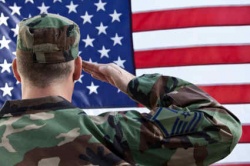Many thanks to our Patrons who cover ~2/3 of our hosting bill. Please join them if you can.
Patriotism
(Redirected from Patriots)
Jump to navigation
Jump to search
(plastic word, ideology) | |
|---|---|
 | |
Official narrative
Boswell tells us that Samuel Johnson made the famous pronouncement that "Patriotism is the last refuge of a scoundrel" on the evening of April 7, 1775. The BBC clarifies in the opening paragraph of a 2014 article which asks What does it mean to be a modern patriot? that " One thing we can be certain of - Johnson by no means intended by this that patriotism was an ignoble emotion", asserting that "Johnson himself was a great patriot".[1]
PATRIOT Act
- Full article:
 Patriot Act
Patriot Act
- Full article:
In the aftermath of the 9-11 event, a law termed the Patriot Act was prepared to exploit the ensuing crisis mentality. Opposition in the US Congress was quelled by the Amerithrax attacks.
Related Quotation
| Page | Quote | Author | Date |
|---|---|---|---|
| Plastic word | “In certain kinds of writing, particularly in art criticism and literary criticism, it is normal to come across long passages which are almost completely lacking in meaning. Words like romantic, plastic, values, human, dead, sentimental, natural, vitality, as used in art criticism, are strictly meaningless, in the sense that they not only do not point to any discoverable object, but are hardly ever expected to do so by the reader. When one critic writes, ‘The outstanding feature of Mr. X's work is its living quality’, while another writes, ‘The immediately striking thing about Mr. X's work is its peculiar deadness’, the reader accepts this as a simple difference opinion. If words like black and white were involved, instead of the jargon words dead and living, he would see at once that language was being used in an improper way. Many political words are similarly abused. The word Fascism has now no meaning except in so far as it signifies ‘something not desirable’. The words democracy, socialism, freedom, patriotic, realistic, justice have each of them several different meanings which cannot be reconciled with one another. In the case of a word like democracy, not only is there no agreed definition, but the attempt to make one is resisted from all sides. It is almost universally felt that when we call a country democratic we are praising it: consequently the defenders of every kind of regime claim that it is a democracy, and fear that they might have to stop using that word if it were tied down to any one meaning. Words of this kind are often used in a consciously dishonest way. That is, the person who uses them has his own private definition, but allows his hearer to think he means something quite different. Statements like Marshal Petain was a true patriot, The Soviet press is the freest in the world, The Catholic Church is opposed to persecution, are almost always made with intent to deceive. Other words used in variable meanings, in most cases more or less dishonestly, are: class, totalitarian, science, progressive, reactionary, bourgeois, equality.” | George Orwell | 1946 |
Related Documents
| Title | Type | Publication date | Author(s) | Description |
|---|---|---|---|---|
| Document:Bradley Manning post-sentencing statement | statement | 21 August 2013 | Chelsea Manning | |
| Document:Some thoughts on "Patriotism" | article | 5 July 2010 | William Blum | |
| Document:The War Prayer | short story | November 1916 | Mark Twain | Mark Twain's scathing indictment of war, and particularly of blind patriotic and religious fervor as motivations for war. The piece was left unpublished at his death, largely due to pressure from his family, who feared that it would be considered sacrilegious. Twain’s publisher and other friends also discouraged him from publishing it. |
| Document:Twenty Years On, We’ve Learned Nothing From 9/11 | Speech | 17 September 2021 | Ron Paul | 20 years on from 9/11, Ron Paul says that The Establishment in the United States has learned nothing since the attacks. |
Many thanks to our Patrons who cover ~2/3 of our hosting bill. Please join them if you can.